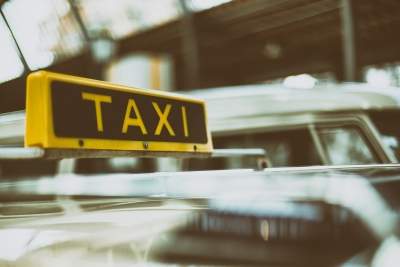
Mumbai (IANS) No trains, no buses, no flights? For the diehard Mumbai cabbies, No problem!
Over the past one week or so, scores of self-owned autorickshaw and taxi drivers from Mumbai Metropolitan Region (MMR) have flagged the meter down for a super long-distance ride - to their homes in Uttar Pradesh, Bihar, Jharkhand and a few in Madhya Pradesh or Haryana.
While a majority comprised owner-drivers with their families, others are the migrants living and driving here to support their kin back home, and a few are opportunists giving a paid ride to passengers desperate to reach their villages and folks.
"Yes, this is true, but the figures emanating are exaggerated. As per our estimates, around 3,000-4,000 autorickshaws and around 1,000 taxis have left. But, they have all gone illegally, and could face the ramifications in case of accidents or a brush with the local law enforcement authorities," Bombay Taximen Union (BTU) President A.L. Quadros told IANS.
His colleague K.K. Tiwari, who is President of Swabhimani Taxi-Rickshaw Union (STRU), however, claims more than 30,000 autorickshaws and over 6,000 taxis have left Maharashtra, and the figure is increasing daily.
"They are desperate to get back to their near and dear ones, they are facing tough times here, savings have been exhausted... So, they decided to undertake these long journeys of anything between 1,250 km-2,250 km depending where they live," Tiwari told IANS.
Mumbai Autorickshaw Taximen Union (MATU) President Shashank Rao estimated that 6,000 autos and some 2,000 taxis may have left on a temporary basis owing to the Covid-19 fears here.
"The trend started a week ago, but the figures are not as high as claimed in some quarters. A majority are going with their families, with intentions to drop them and return after things normalise in MMR," Rao told IANS.
The three leaders concur that taking an autorickshaw or taxi holding a Maharashtra Permit to another state would be "akin to killing the goose which lays a golden egg daily".
Quadros, Tiwari and Rao admit that it would be difficult for these autos-taxi drivers to make a living on a Maharashtra Permit in other states, since the permits need to be transferred or it will be simply forfeited.
There are around 12,00,000 autorickshaws in Maharashtra, including 200,000 in Mumbai, besides another 1.20 crore autorickshaws around the country, according to Quadros.
"Autorickshaw is the cheapest, quickest and best means of transport, for any terrain ranging from crowded metros like Mumbai to the remotest villages in the country. Taxis are popular only in Mumbai which has 45,000-plus, besides around 500 in Pune and around 150 in Nashik, and a few other big cities," Quadros said.
Tiwari said that en route, the auto-drivers have to stop every 50-60 km to refuel but can traverse around 400 km daily with a single driver, while taxis can cover around 600 km.
"Fortunately, wherever they pass, the local cabbies welcome our men, make basic arrangements for their food, shelter and bath, etc. Many have already reached their homes safely after 3-4 days' journey and informed us of their well-being," Tiwari said.
Rao said that though these cabbies may have turned their backs on Maharashtra now, a majority of them would return later as "many have their children's education going on here, and some have bought or invested in homes here".
Tiwari estimates that around 25 percent have left for good, but the rest would come back to tie up loose ends and probably leave later if the future remains uncertain.
Interestingly, a majority of those who quit the state are from UP, followed by Bihar, Jharkhand and a small number from MP, Haryana or other states who made a living here driving autos-taxis.
As per estimates by the three unions, roughly 20 percent of the number of autos-taxis strength is depleted due to the one-way inter-state travel.
MMR comprising Mumbai, Thane, Palghar and Raigad has a population of over 2.50 crore with a majority depending on public transport like the suburban railways, buses, autos and taxis for their daily commute to and from home and offices.
The apprehension among the commuters is the possible shortage of autos-taxis coupled with fare hikes in the post-lockdown period when monsoon would be raging in the state.
Manoj Singh Dubey, a taxi-driver from Kandivali suburb, drove nearly three days and almost 2.000 km to UP's Badaun with his wife and three kids, and most of their belongings, hinting he may not return to Maharashtra where he earned a livelihood for over 15 years.
"Hopes are diminishing... My eldest son is in Class 5, both daughters in primary class, so we can easily get admission in our local UP schools. I alone supported three families back home with the taxi running in three shifts. But, now I don't know what's in store for us," Dubey told IANS from his UP home.
.